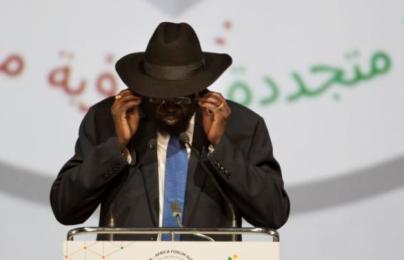President Kiir approves creation of more counties in new 28 states
April 24, 2016 (JUBA) – South Sudanese President, Salva Kiir, has approved creation of more counties in the newly established controversial 28 states.

President Kiir, according to several officials in his office, appended his signature approving the resolution of the council of states on list of the proposed counties of the 28 states.
“The president signed the resolution of the council of states seeking to create more counties according to the size of the population and resources with which the counties would be sustained. He signed it on 17 April, 2016,” a presidential aide told Sudan Tribune on Sunday.
The recommendation of the council of states, according to presidential aide, proposes that small states create not more than 8 counties while bigger ones create 12 as the upper limit.
Observers are keen to stress that the approval of more counties by the president sends a signal of determination of the government to continue with the implementation of a unilateral decision to create 28 states against the August 2015 peace agreement signed based on 10 states by the parties to the conflict in South Sudan.
They also fear it would undermine implementation of the peace deal as well as social harmony among communities, particularly those who have contested the establishment order.
(ST)
